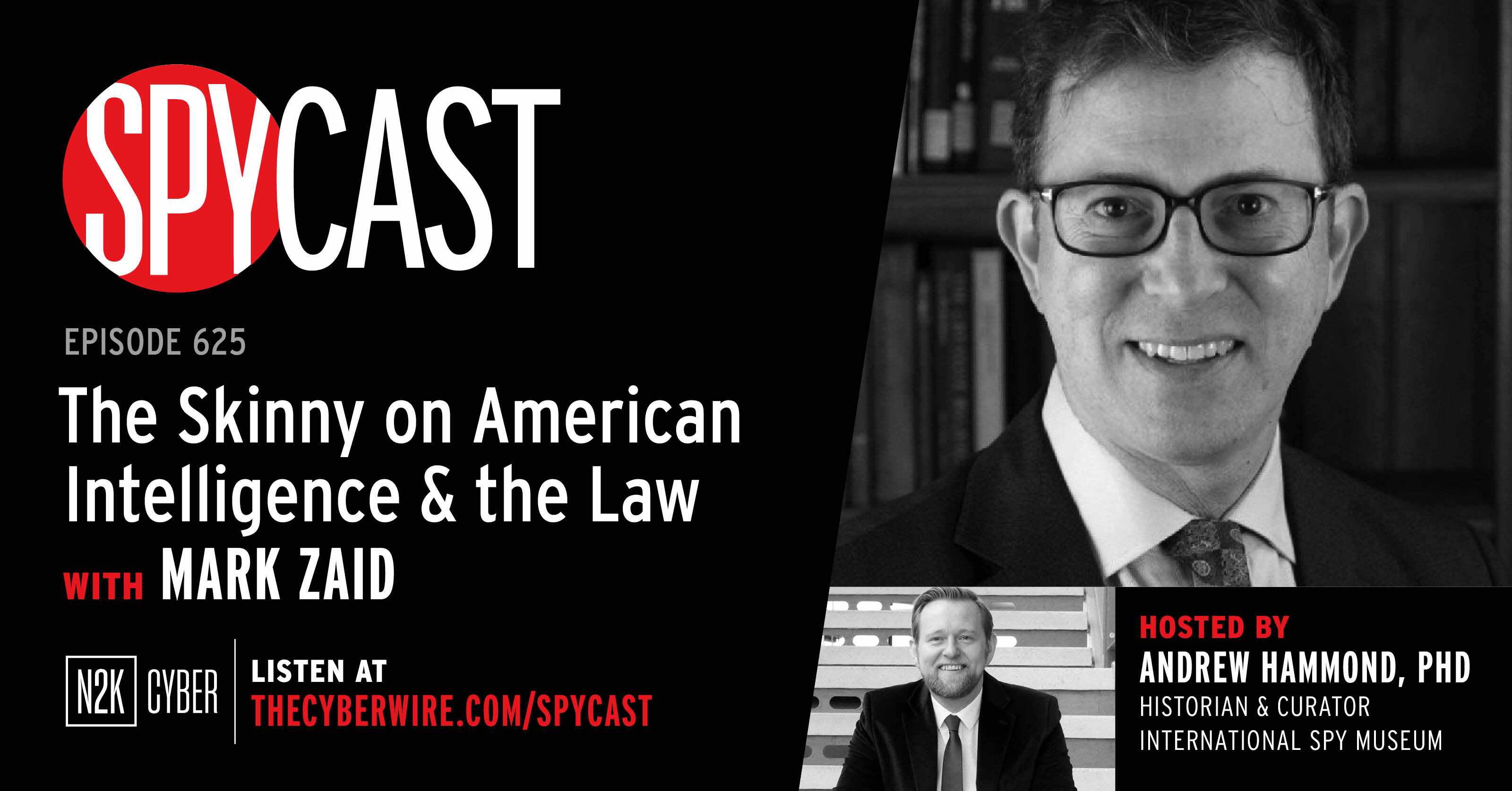
“The Skinny on American Intelligence & the Law” – with D.C. “Super Lawyer” Mark Zaid
Summary
Mark Zaid (X, LinkedIn) joins Andrew (X; LinkedIn) to discuss American intelligence and the law. You’ve heard of a “lawyer to the stars,” Mark is the “lawyer to the spies.”
What You’ll Learn
Intelligence
- The quirks of being a lawyer in this space
- How the Espionage Act works in practice
- The trial of the Rosenbergs
- The origins of FOIA and its purpose
- The Legal foundations underpinning espionage and intelligence
Reflections
- Challenging authority
- The delicate balance of secrecy
And much, much more …
Episode Notes
This week, Andrew was joined in the studio by Mark Zaid. Mark is an attorney who specializes in litigation relating to national security, international law, and the Freedom of Information/Privacy Acts … or in simpler terms, a spy lawyer! Mark has represented Whistleblowers, current and former members of the intelligence community, the American Polygraph Association, and beyond.
In this episode, Andrew and Mark discuss the complicated yet fascinating word of American law as it relates to intelligence. They touch on the trial of the Rosenbergs, classic Whistleblower examples, and modern-day usage of the polygraph. If you’ve ever wanted to know the intelligence connection to Wonder Woman’s Lasso of Truth, you’ll want to tune in to this episode.
And…
Mark and Erin are both graduates of the University of Rochester in Rochester, New York. Rochester, known now for local delicacy garbage plates and the annual Lilac Festival, was once a hub of historic change and evolution. Frederick Douglass published The North Star abolitionist newspaper out of Rochester in 1847; Susan B. Anthony was arrested on the front porch of her house in Rochester after voting in the 1872 Presidential Election; and George Eastman patented and released the Kodak camera in Rochester in 1888.
Quotes of the Week
“I still love working every day, 30 years later, because there's still something new. As much as I fight for declassification and transparency, I will at times also see information and learn of events where I go, “Oh, I get it. Yeah, that stuff cannot be known. That's incredible what we did. That's pretty wild.” – Mark Zaid.
Resources
SURFACE SKIM
*SpyCasts*
- Agent of Betrayal, FBI Spy Robert Hanssen with CBS’ Major Garrett and Friends (2023)
- David Petraeus on Ukraine & Intelligence with the former CIA Director & 4* General (2023)
- Havana Syndrome – A Panel featuring Nicky Woolf, Marc Polymeropoulos, and Mark Zaid (2023)
- How Artificial Intelligence is Changing the Spy Game with Mike Susong (2023)
*Beginner Resources*
- What Is a Whistleblower? Protections, Law, Importance, and Example, W. Kenton, Investopedia (2022) [Short article]
- What is a Lawyer? American Bar Association (2019) [Short article]
- Legal System Basics, CrashCourse, YouTube (2015) [8 min. video]
DEEPER DIVE
Books
- State of Silence: The Espionage Act and the Rise of America's Secrecy Regime, S. Lebovic (Basic Books, 2023)
- Ethel Rosenberg, A. Sebba (Griffin, 2022)
- Spies on Trial: True Tales of Espionage in the Courtroom, C. C. Kuhne (Rowman & Littlefield Publishers, 2019)
Articles
- Could today’s AI catch notorious traitor Aldrich Ames? C. Amato, Medium (2023)
- How Today’s World Can Help Us See That There’s More to the Ethel Rosenberg Story, A. Sebba, Time Magazine (2021)
- The Origins of the Polygraph, T. Burbank, Warren Anatomical Museum (2020)
- The Espionage Act, C. C. Hyde, American Journal of International Law (2017)
- Whistleblowing as civil disobedience: The case of Edward Snowden, W. R. Scheuerman, Journal of Philosophy and Social Criticism (2014)
- Bureau Never Administered Polygraph Test To 30-Year Agent Who Handled Informer, E. Lichtblau, The New York Times (2003)
Video
- United States of Secrets, PBS Frontline (2014)
Primary Sources
- A Letter from Aldrich Ames on Polygraph Testing (2000)
- Whistle Blower Protection Act (1989)
- DoD Polygraph Program (1984)
- National Security Decision Directive 84 (1983)
- Inspector General Act (1978)
- Freedom of Information Act (1966)
- Administrative Procedure Act (1946)
- Espionage Act (1917)
*Wildcard Resource*
- John Adams, a 2008 HBO Mini-Series chronicling the Founding Father’s role in early America
- John Adams, much like Mark, was a lawyer dedicated to the right to representation. Adams, ever dedicated to the honor of his profession, was the only attorney who agreed to defend the British soldiers involved in the Boston Massacre. You can read the whole trial here.


